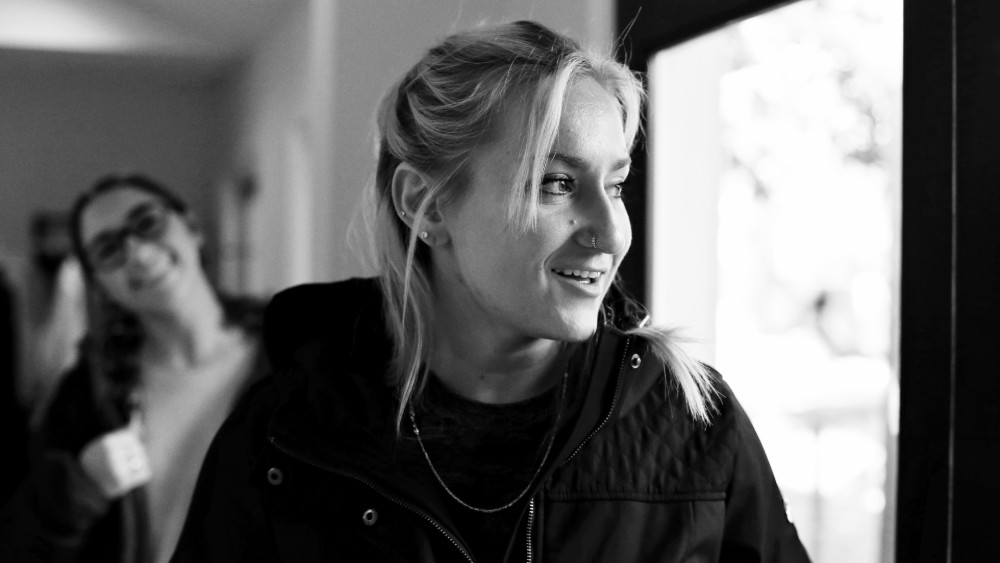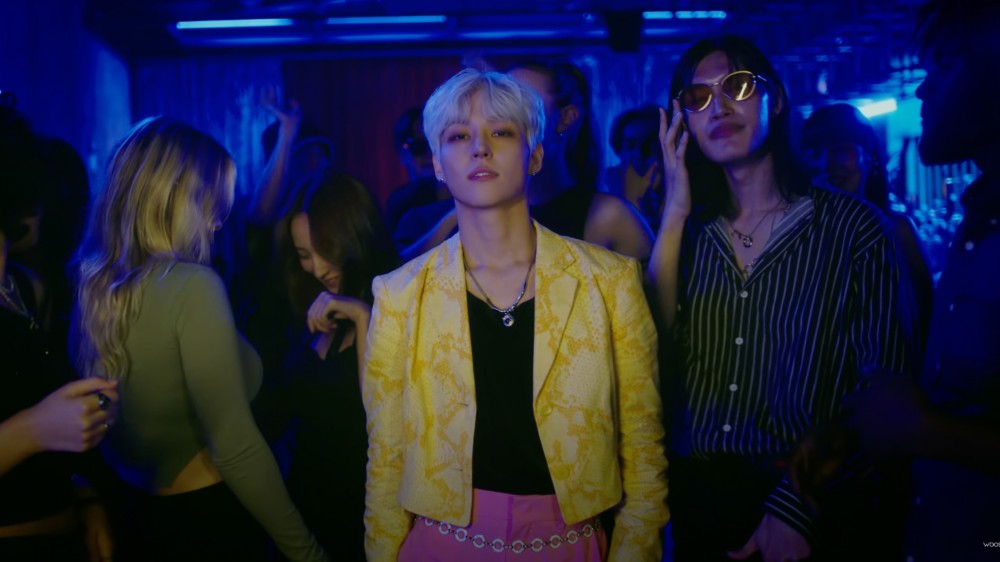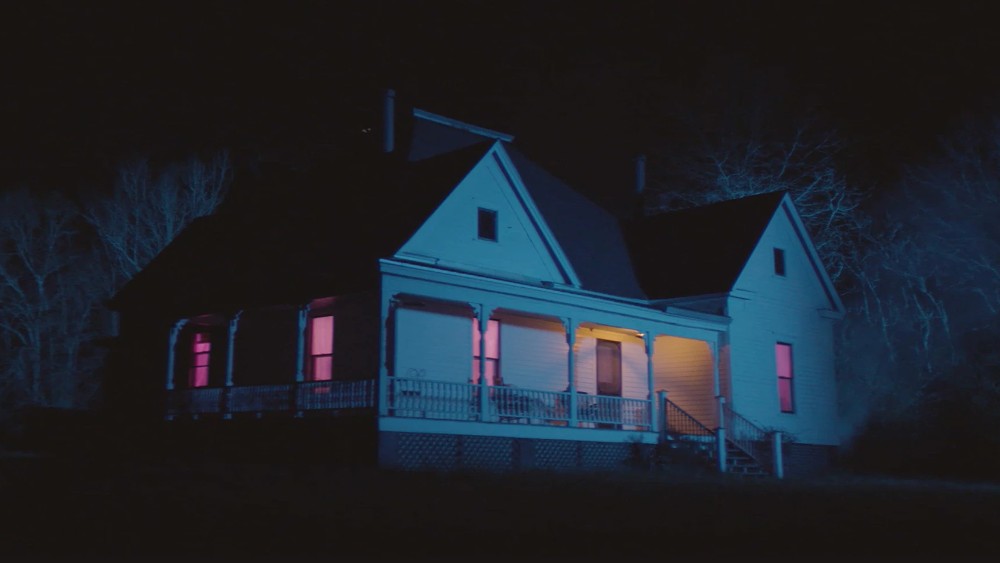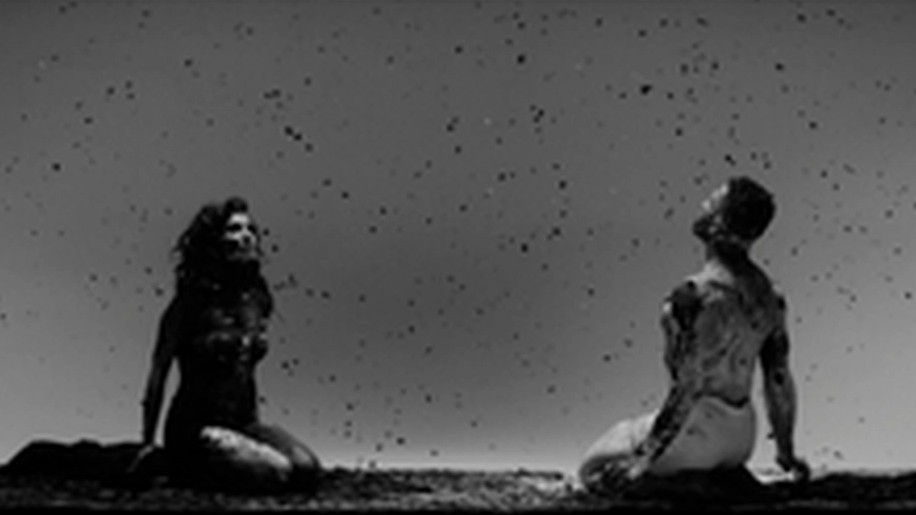
Briana Frapart, CSA has been working as a casting director in L.A. for nearly a decade, though that’s just the tip of her entertainment expertise, as she has held a wide range of jobs in the industry.
Besides her casting work, Frapart is also a producer; she’s currently working on Racheal Stephens’ independent horror film Alaska, which won a number of screenplay contests and is currently in post. At the same time, Frapart has been managing various K-pop artists as well as producing and directing music videos and records within that burgeoning music genre.
Below the Line spoke with Frapart several months ago about the various roles she has played in the biz, so this interview covers her experiences working in both the film and television world as well as the music business.
Below the Line: I know you wear multiple hats these days, but you attended Florida State for film production, so what was your first step after graduation?
Briana Frapart: I graduated [in] December 2011, so it’s almost been a decade now, but it’s interesting because I always knew my path was going to be casting and producing; that’s what I was working towards as I was in college. When I had graduated initially, there was an independent film that was lined up in South Florida that I was attached to not only be a producer on but also have the casting. Unfortunately, when the financing fell through, it was at the top of the year after I graduated, so I went from thinking I knew what I was going to jump into tackle first to being like, ‘Okay, now I have an open slate. I’m not really sure what’s the new thing that I’m going to start.’
I had a degree, and obviously had a wonderful alumni circle. I reached out to the casting director in South Florida, I’d say she’s the most notable — there are not many casting directors in Florida. Her name is Lori Wyman, and she did anything from Miami Vice all the way to Pain and Gain. If anything is shot in South Florida, even in Central Florida, she was the go-to casting director and just such a force, a beautiful human being, and she mentored me. That’s kind of where I started, but it wasn’t the plan initially, because I thought I was going to be on this indie film.
Around the same time, I had met someone through a couple mutual friends who was looking for an assistant. He was a financier for Rabbit Bandini, which is James Franco‘s production company, so I was also kind of dabbling in ‘How do I learn that world?’ But yeah, that’s kind of how I got started. It wasn’t planned. It just kind of jumped right in to chase what I knew I was passionate about.
BTL: Were you working in Miami or somewhere just outside? I feel like Miami had a big boom in production around that time.
Frapart: It was at the time. When I left, that’s when the state of Florida was just like, ‘Get out of here. We don’t want production.’ They were not very film-friendly, in general, but I grew up in South Florida, so I was in Fort Lauderdale. Florida State is in Tallahassee, Florida, which is about seven hours northwest, and so I would just go from home in Fort Lauderdale to North Miami for the first nine months after graduation before I moved to Los Angeles in September 2012.
BTL: When you moved to the West Coast, did you hook up with another casting director and start work with them?
Frapart: I have a way of just sending cold emails and outreach [where I] just chase people down and introduce myself and see how I can help them. I didn’t have anything lined up. I just moved out here with some savings and some friends from college, but I saw some notice about a casting studio that was launching the same month called Hollywood Casting and Film. They were a group of very ambitious investors and aspiring filmmakers that had the funding to put this together but didn’t know how casting worked. They brought me in and were like, ‘Hey, can you teach us about casting?’
So for me, I knew what I learned at film school, I knew what I learned from Lori, which was a ton when I was with her in Miami. I really owe everything I’ve learned about casting to her. I’ve worked with a number of casting directors out here since and have become one myself, but Lori really taught me everything that I know to this day and has helped me be successful.
I started with them, and I built out the system at the studio of how you run sessions, the cameras, the formatting, how you export tapes, the dos and don’ts for actors. They had this actor database of folks that would sign up to a monthly membership, and they’d have access to different workshops or audition opportunities. I learned as I was teaching, but I didn’t know that was initially what I was getting myself into, to lead. I had a pattern from then on of connecting with startups and then helping them get on their feet.

BTL: There’s probably a bit of a gray area for people outside the industry, and maybe even for those wanting to be actors about the thin line between casting director and producer. I assume there are probably some financial matters you eventually hand off to the producer, so how does that work?
Frapart: It kind of depends on what the project type is, but let’s say on a feature film, they usually are going to have a certain budget they’re working with for the cast that they want to set. I always know that number before getting into it. It’s like, ‘what do we have to work with? What is their total budget?’ Obviously, negotiating whatever my rate might be, and then knowing that, I will release a breakdown that will go to agents and managers. Sometimes it’ll go directly to actors that we know ourselves, or just friends that are like, ‘Hey, I think this actor might be great.’ They’ll submit to the project, we’ll take a look. That’s, like, one area where you can also do self-taping and auditions. Obviously, COVID has changed things now, but usually, I’d say the first [step] to get going if you’re working in indie film, or any sort of film, is to attach a star, right?
So depending on what budget you have to work with, you can be looking for a rising star or an undiscovered [one], and at the same time making offers to A or B-list names that can help get additional financing behind your film, or whatever that might be. Usually, with producers, I’ll know from the get-go what numbers we’re working with. Let’s say that we get into a negotiation where someone’s engaging, but they want more money. That’s usually when I’m hands-off. If I’m just the casting director on the project, then that goes to the producers, the attorneys, and then they battle that out. Initially, what I do is at least bring what that opening offer might be and proposal for, let’s say, an actor, and then I wait and see if the producers and attorneys and able to close, then you keep moving forward. They’re probably 50% of the way until they close the deal, and then I don’t really meddle in anything, obviously, in production [or] moving forward. I just kind of wait for a couple of years until the film comes out.
BTL: I assume reading the script is part of your breakdown process. You get a script, and you have to break it down into different characters and pay levels?
Frapart: Let’s say they bring me a budget, they bring me the script — obviously, that’s the first thing I read — but I’ll know the number around the same time because as I’m reading, I’m thinking who might be good for real. But when we read the script, we’ll do our own breakdown version. A lot of times it’s noted in the script, the age range or ethnicity, the gender. What are these characteristics, the idiosyncrasies that make that character them, that make them special? I’ll formulate my own hypothesis.
Let’s say I can go to the directors and producers and say, ‘hey, this is what I’m thinking, what about you?’ There are many times though where the director or the writer already has an idea of what they’re looking for. Sometimes I’ll merge the two descriptions, and then we’ll finalize that, approve it. It takes a couple of times throughout the process before we release that to reps. It’s a little bit of the casting directors putting our hats on and saying, ‘Hey, this is what I think the role needs to have,’ and then we’ll have the director and producers that will either weigh in on that or they’ll say, ‘Yeah, that’s great. I didn’t even think of that,’ which half the time that’s what happens — the directors and producers will think one thing, and then we’ll do casting, and they’re like, ‘I didn’t even think about that,’ which is the really cool part of our job — to be able to bring that accent.
We’re only there for a certain amount of time, so we can bring a bit more of a new flavor or support that the writer, director, producers, who have probably been on the journey for anywhere from one to five years, didn’t think of before. So, we get to strengthen and empower them to become re-passionate about the project, because they’re constantly thinking about numbers, probably.
BTL: Since you’re involved in the indie world of filmmaking, I have to imagine there’s so much energy spent trying to get name actors committed and attached to a project, but then still having to wait five or six years and having to make sure you still have them.
Frapart: That happens all the time. We have one star attached… it’s happened to me a few times, where you have someone attached, and then the project goes for 5, 6, 7 other months, and then that talent has another offer on the table that might be more to their liking, and it’s competitive, and then you have to recast or reattach a name. That happens all the time. I think that even happens definitely within the studio system as well, with the multimillion-dollar budgets. It just takes time.
From my experience, an actor can only have so much hype and excitement for a role for so long. They’re growing in their career, and they’re moving forward, so sometimes it works [out] that you have to recast. I just went through that actually on Alaska, where we had Alexis Ren, who’s known as a model. She has her own company now too, but we had tapped her for this really, really cool role. For a good six or seven months, she was attached, and then she had a competing offer by the time we actually had our shoot dates. COVID had a lot to do with pushing those often, but unfortunately, we did recast her.
It worked out just fine, but that was an instance where she had a competing offer come in, and the dates didn’t work, and we just had to move forward and wish her well, but hopefully work with her on the next one. She’s a sweetheart. I’ve worked with her before, so I know she’s great.

BTL: Are you able to watch TV or movies or anything without constantly thinking, ‘Okay, I need to make a mental note and keep track of that person for something?’
Frapart: No, it’s really impossible for me. Anytime I’m watching a show or a movie, my head is always thinking, ‘Who is this person? Who is this actor?’ Or, ‘Yes, I know this actor. How did they do in this role?’ I can think of them to play this type of character in the future. But it’s never turning off for me. I’ll be in the movie theater or see a TV show, and there’s a bit player or a guest star that I haven’t seen before, and I’ll go right to IMDb Pro and check them out, see their credits and headshots and everything and I’ll add them to a watchlist. I do that every day, just making a note for the future. ‘How is this actor for this role? Come back to them later?’ or ‘Who is their rep? Let me reach out to their rep and get them materials for a project that might be coming down the pipeline in a couple of months,’ and [then] I can come back to them.
BTL: How much are you involved with deciding whether you need to hold auditions or audition someone who has done a lot of work? Is that often up to the filmmaker who wants to make sure that whoever you’re suggesting is right for the part?
Frapart: The budget really affects whether we do or do not do tapes, I’d say, or audition. With COVID now, self-tapes are a real thing, and you have some callbacks, but most of the time, it’s just requesting a self-tape from actors. In my experience, I will always do tapes if it’s, let’s say, anywhere beyond five plus-characters that I’m casting. I had a project which I just wrapped where I helped with probably 25 roles. There’s no way with 25 roles that I’m going to know exactly who’s gonna play which role. Getting a breakdown out and getting tapes is essential. But I always do it to keep it in my back pocket, and then also, you never know.
You could have an incredible talent who auditions, and you’ve never seen them before, and they just steal a show. Then they become the lead or the supporting actor or whatever it might be instead of, say, an A-list name, depending on what the producers want to do. I always choose to do tapes, whether I show them, or auditions rather, whether [or not] I show them to the producers and directors right away. Sometimes I’ll hold onto them just in case. If it’s something that they want to do, then we easily could set that up pretty quickly.
BTL: You’ve done some TV stuff as well, so is there a big difference casting for television? Obviously, if you’re doing a weekly show, there will be different supporting roles.
Frapart: Yeah, TV is much bigger. You get the breakdown, and you have two weeks to do everything. To do auditions, to make offers, to close, to get them to wardrobe, and makeup and hair. TV moves very, very quick. I think I like features more, but there are some cool roles that you get to cast on TV that you don’t really see as much sometimes in features. It’s just not the right place for it.

BTL: How are things going on Alaska? That’s in post-production, right?
Frapart: Alaska we shot in August. I’ve known the writer-director-executive producer Racheal Stephens, we went to film school together. I’ve known about this project and actually helped her cast her proof-of-concept sizzle seven or eight years ago for the same project. Because we’ve known each other for a while, and because there were a couple of things she needed outside of a casting director hat, I came on board and joined the team as one of the producers now, just to help moving forward beyond just the casting process. We wrapped at the end of August, and then we have some pickups to do, which I think we might do next year, once we’re a little bit closer to the edit and understanding what exactly it is that we need to go get and finish up. I’d say that we were like 95% done when it comes to principal photography.
BTL: I do want to branch into some of the other things you do, such as K-pop, because I’m so curious how you got involved in that scene, which is absolutely exploding.
Frapart: It really just started as I discovered K-pop music videos in high school, and I thought that they were done so well — the quality of production, the storytelling. I didn’t, obviously, understand the language, but I liked the production beats. I grew up with a father who’s very musically inclined and playing guitar all the time and piano, so I just love music. I just found it on YouTube and then became hooked. When I was in film school, my thesis was actually 100% in Korean language. I did another film that had some Korean or K-pop elements as well. I was just determined that when I came to Los Angeles, I would find a way to connect the two worlds and basically introduce Hollywood or mainstream media to K-pop. It’s just this really interesting niche, quality-driven, innovative art form.
[So] I moved out here and again, me being a cold outreach person, I was like, ‘Hey, let me reach out to this famous K-pop choreographer that I’ve known for years and see if she needs any help on the production side for any of her content.’ Fast-forward to now. I manage multiple K-pop artists [and] I produce music videos for K-pop artists when they come to L.A. I just fell in love and was like, ‘I gotta introduce this beauty to other people and see how I can make an impact,’ just with the knowledge that I’ve acquired through being a consumer, I guess.
BTL: As if being a casting director doesn’t take up enough of your time! How do you balance it all?
Frapart: What has been cool about what I get to do is not just being a casting director, but also understanding production or understanding the music world and connecting all of those dots, because there is some sort of transmedia crossover that happens, I feel. I had a couple of meetings, weeks back, where these producers and financiers were looking for names in Asia to attach to projects, and so if I didn’t have the casting director experience that I have now, I might not know how that would quite work out.
Because I have that experience, and because I know the K-pop world, the communication flow is not as difficult. I think if I was just working in production, but didn’t understand casting — if I’m like, ‘hey, yeah, let me reach out to this K-pop talent’ — I don’t know where I would begin in terms of finding out how you strike a deal. How do you get them to read a script? How do you get them to audition? What’s their availability like? What’s the scheduling like? What are budgets like and rates and scale and SAG and all the international stuff that comes with that? I’m grateful for the casting background that I have. I do feel that it supports all areas.

BTL: What’s the next thing you’ve worked on that you’re excited about and that people are going to be able to see soon?
Frapart: When it comes to just anything that I’m doing? Well, I am very stoked about Alaska. There’s another project that I did with Chris Oroza. We did [the short] Savior, which [did an] Oscar campaign. We did a project called How to Be a Man, and I don’t know when that’s gonna release, but I think it’s going to be in the next couple of months. I’m very excited about that. It’s definitely diversity-driven, but the cinematography is gorgeous, the movement is gorgeous, the message is worthwhile, and just very important.
One of the K-pop artists that I manage is attached to a film that I’m producing. We [recently] released his first album as an independent artist, so I’m very excited about that, because I’ve produced all the content for that and built that entire campaign, I guess you could say. I’ve got another K-pop music video that’s shooting. I do also help with the casting, but I’d say as a producer, because I have the casting background, I can hire multiple casting assistants or coordinators when I’m doing production and understand how to teach them how to run the casting for something that I’m producing, if that makes sense.
BTL: And you’re doing music production as well?
Frapart: I’m not the artsy person. I’m just the, ‘Hey, let me find the talent and merge them together and make something beautiful.’ So I do that, yes, and again, that’s why I say that casting, being the core of it all [in terms] of where I started, I’m just really fortunate to have started in casting, and I really love all things talent. When I started doing these campaigns or interviews, that’s what I want everyone to know is, ‘I’m all things talent.’ Whether I’m casting or management or producing, I’m just all about bringing those characters and storylines and inspiration to audiences.
For more about Frapart as well as her work and current projects, please visit her official website.





